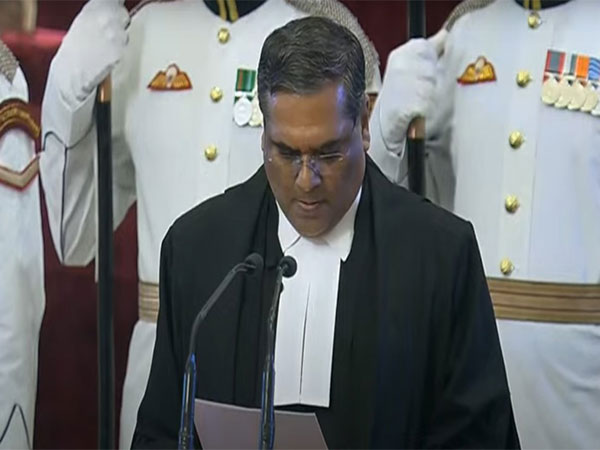Justice Sanjiv Khanna was sworn in as the 51st Chief Justice of India (CJI) on Monday in a formal ceremony held at Rashtrapati Bhavan. President Droupadi Murmu administered the oath of office, attended by several high-profile dignitaries, including Vice President Jagdeep Dhankhar, Prime Minister Narendra Modi, Defence Minister Rajnath Singh, Law Minister Arjun Ram Meghwal, and other members of the Union Cabinet.
Justice Khanna, a Supreme Court judge since 2019, has been a part of various influential benches. Notably, he played a role in decisions such as upholding the abrogation of Article 370, which removed the special status of Jammu and Kashmir, and the recent ruling that overturned the electoral bonds scheme. Khanna took the oath in English, pledging to uphold the Constitution of India without fear, favor, affection, or ill will.
Justice Khanna’s career began in 1983 when he joined as an advocate under the Delhi Bar Council. He has extensive experience in diverse legal domains, including constitutional law, taxation, arbitration, and environmental law. His judicial journey includes appointments in the Delhi High Court and the Supreme Court, where he handled high-profile cases that helped shape Indian law.
In a show of respect and continuity, the ceremony was also attended by retired Chief Justices and prominent legal figures. This gathering of judicial and political luminaries underscored the collaborative spirit of India’s legal system, reflecting both its tradition and evolution.
Justice Khanna succeeds former Chief Justice DY Chandrachud. Reflecting on his time as CJI, Justice Chandrachud shared an emotional farewell, recalling his journey from being a law student to the nation’s highest judicial office. He expressed the privilege of serving the country and the personal and professional growth the role afforded him.
Justice Khanna will serve a six-month term, during which he is expected to guide the Supreme Court on issues of national importance. His tenure reflects the government’s recent notification, issued under Article 124 of the Indian Constitution, affirming his appointment to the highest judicial role effective November 11, 2024.
(ANI)




















